- Heat recovery in industrial ventilation systems
- Wastewater heat recovery ECOWEC®
- Wastewater heat recovery [PDF]
Heat recovery in industrial ventilation systems
Heat exchangers with intermediate coolant – glycol model. The efficiency of heat exchangers is about 50-70%
Advantages:
- The possibility of placing supply and exhaust heat exchangers at a considerable distance from each other;
- Heat exchangers can be selected for any industrial premises with varying degrees of pollution;
- Convenient maintenance of heat exchangers;
- The dimensions of the heat exchangers can be selected for any air flow;
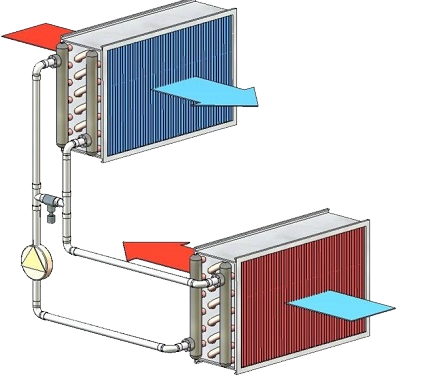
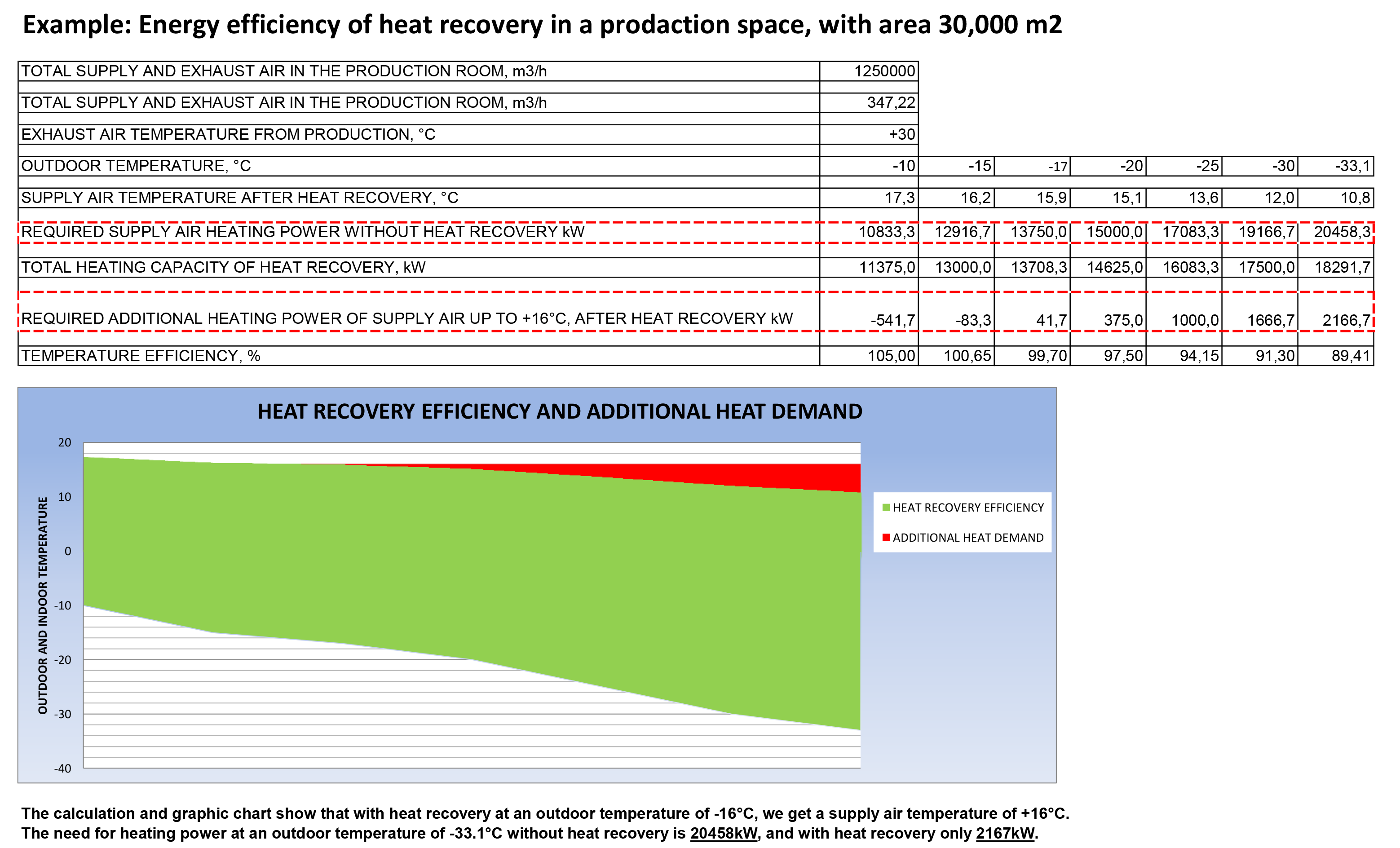
Wastewater heat recovery ECOWEC®
Ecowec® Hybrid Heat exchanger
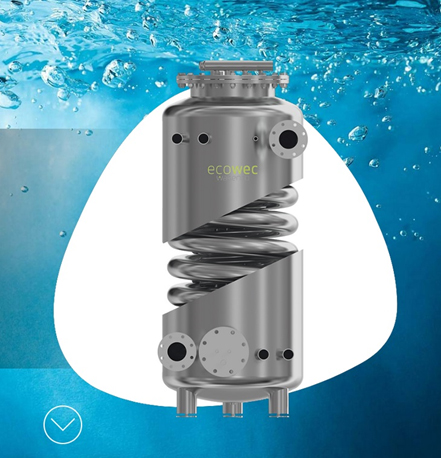
Finnish-made Ecowec hybrid exchanger is a maintenance-free tube heat exchanger suitable for waste water, pool water, process liquids and steam.
Ecowec hybrid exchangers are manufactured for different uses in several size categories and from different materials.
Hybrid Heat exchanger Ecowec®
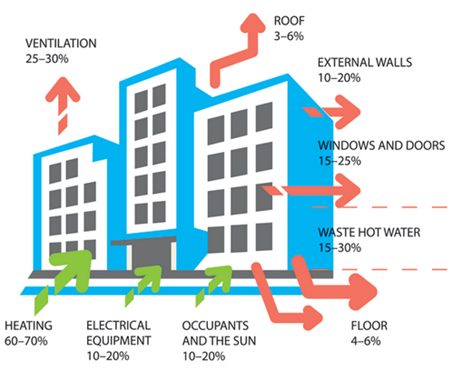
Wastewater Heat Recovery
Wastewater heat recovery is the most cost-effective way to reduce a building’s energy consumption. Approximately 30% of an apartment building’s annual heating energy consumption goes to heating domestic water and subsequently down the drain. In energy-efficient A-class buildings, the energy contained in the domestic water accounts for over 50% of the heat balance. It is possible to recover thermal energy from wastewater led to the sewer and reuse it with the Ecowec hybrid exchanger. The building’s total energy consumption can be significantly reduced by recovering heat from wastewater.
Heat Balance in Apartment Buildings
Finns use about 155 liters of water per day, of which about 40% is hot domestic water. On average, about 20-50% of the total energy consumption of residential buildings goes down the drain, but this percentage will increase in the future due to energy renovations of older buildings. With the relative amount of heat energy contained in wastewater increasing, site-specific wastewater heat recovery is becoming part of energy and cost-efficient construction, which can very effectively reduce both construction costs and building operating energy costs.
Heat energy from treated wastewater has previously only been recoverable on a centralized basis at municipal wastewater treatment plants and used as part of district heating production, which has also made district heating even more ecological. Now, the heat energy from wastewater can also be recovered on a property-specific basis, without the need to first purify the wastewater. At the same time, the loss of heat energy contained in sewer waters in municipal sewer networks outside buildings is also reduced.
Hybrid Heat exchanger Ecowec is capable of recovering the thermal energy contained in wastewater, and recover heat from it with an efficiency of up to 95 %.
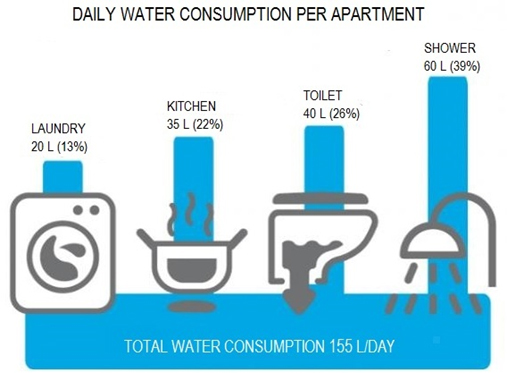
Wastewater heat recovery is a fairly new topic in Finland.
As EU directives and national building regulations become stricter, more and more ways to save energy are required. Buildings consume a significant portion of all energy consumed in Finland, which is covered by a significant amount of imported energy from outside Finland. Additionally, reducing the amount of energy consumed by buildings would be a significant step towards meeting national and global climate goals.
In the past, hot water and home heating could be produced using district heating, a heat pump, electricity or traditional heating methods such as oil heating. The cheapest system in terms of energy costs was often the most expensive option in terms of acquisition costs. It was previously assumed that cost-effective and energy-efficient heat recovery from wastewater would require separating black and gray wastewater, in which case the acquisition costs and payback period of the system in question would increase significantly.
There is now a simple solution on the market - the Ecowec hybrid heat exchanger - to which all wastewater can be routed, without the need to separate gray and black wastewater and, for example, double drainage on sites is no longer required.
The Ecowec hybrid heat exchanger is suitable for all types of heating, increasing their power, performance and efficiency, as well as their service life when heating a room. Housing companies should first look at the savings opportunities offered by the Ecowec Hybrid Heat Exchanger before deciding to upgrade an expensive heating system.
